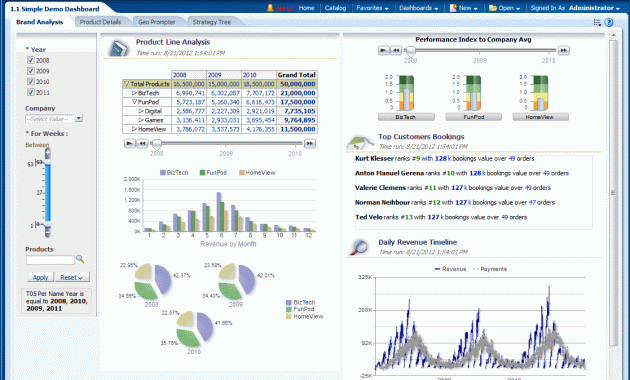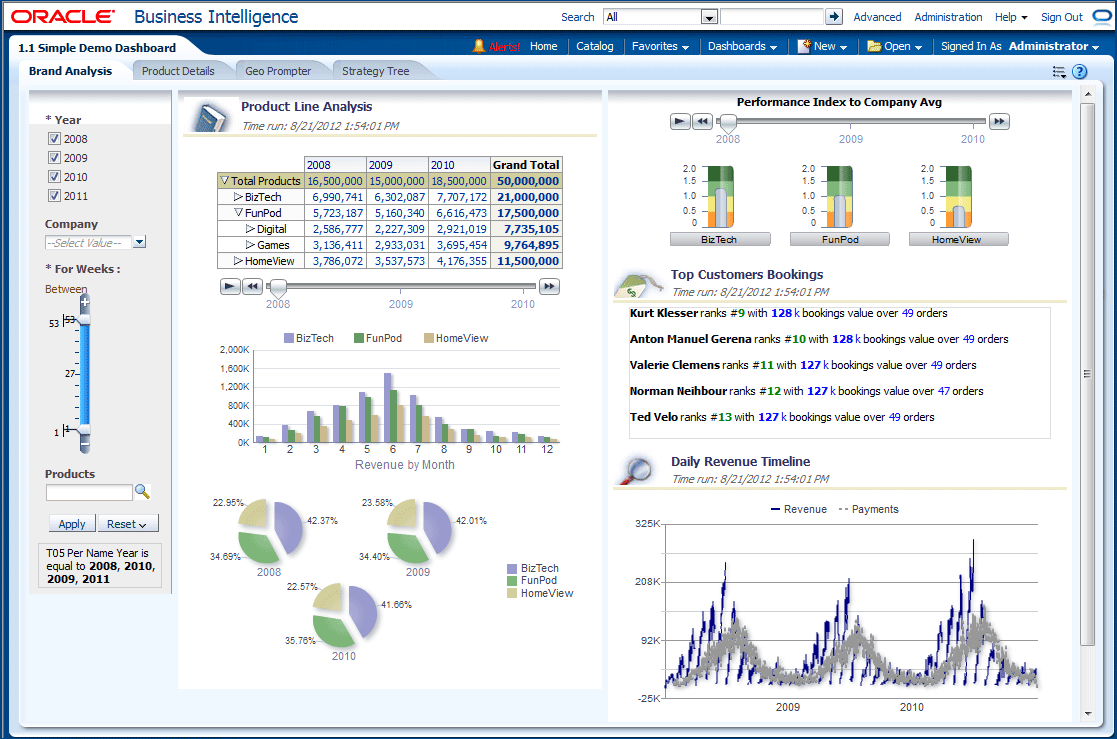
Business Intelligence Tools That Improve Polish: A Deep Dive
In the dynamic landscape of modern business, data reigns supreme. The ability to collect, analyze, and interpret data is no longer a luxury, but a necessity for sustained success. This is where Business Intelligence (BI) tools come into play. They transform raw data into actionable insights, enabling businesses to make informed decisions, optimize operations, and gain a competitive edge. This article will explore how **Business Intelligence Tools That Improve Polish** businesses can leverage these powerful instruments. We will delve into the specific benefits, key features, and prominent tools that can significantly enhance operational efficiency and strategic decision-making within the Polish market.
Understanding the Power of Business Intelligence
At its core, Business Intelligence involves the processes, technologies, and strategies used to analyze business data. The goal is to provide decision-makers with comprehensive, accurate, and timely information. This encompasses a wide range of activities, including data warehousing, data mining, online analytical processing (OLAP), and reporting. BI tools facilitate these activities, offering user-friendly interfaces and powerful analytical capabilities.
For businesses in Poland, the adoption of BI tools presents a significant opportunity. The Polish economy is experiencing steady growth, with increasing competition across various sectors. To thrive in this environment, companies need to understand their customers, streamline operations, and identify new market opportunities. **Business Intelligence Tools That Improve Polish** businesses are becoming increasingly crucial.
Key Benefits for Polish Businesses
Implementing BI tools offers several key advantages specifically relevant to the Polish market:
- Improved Decision-Making: BI tools provide data-driven insights, reducing reliance on intuition and gut feelings. This allows Polish businesses to make more informed decisions about investments, marketing strategies, and resource allocation.
- Enhanced Operational Efficiency: By analyzing operational data, BI tools can identify inefficiencies and bottlenecks. This enables Polish companies to optimize processes, reduce costs, and improve overall productivity.
- Better Customer Understanding: BI tools can analyze customer data to identify trends, preferences, and behaviors. This empowers Polish businesses to tailor their products and services to meet customer needs and improve customer satisfaction.
- Competitive Advantage: By leveraging data insights, Polish businesses can gain a competitive edge in the market. They can identify new opportunities, anticipate market trends, and respond quickly to changing conditions.
- Regulatory Compliance: Many industries in Poland are subject to strict regulations. BI tools can help businesses track and report on key performance indicators (KPIs), ensuring compliance with relevant laws and regulations.
Essential Features of Effective BI Tools
To maximize the benefits of BI, Polish businesses should look for tools with the following key features:
- Data Integration: The ability to connect to and integrate data from various sources, including databases, spreadsheets, cloud services, and CRM systems.
- Data Visualization: Powerful data visualization capabilities, such as charts, graphs, and dashboards, to present data in an easily understandable format.
- Data Analysis: Advanced analytical features, including statistical analysis, data mining, and predictive modeling, to uncover hidden patterns and insights.
- Reporting: Customizable reporting features that allow users to generate reports tailored to their specific needs and requirements.
- User-Friendliness: Intuitive interfaces and easy-to-use tools that make it simple for users to access and analyze data, regardless of their technical expertise.
- Scalability: The ability to handle large volumes of data and adapt to the growing needs of the business.
- Security: Robust security features to protect sensitive data from unauthorized access.
Top Business Intelligence Tools for the Polish Market
Several BI tools are particularly well-suited for businesses operating in Poland. These tools offer a combination of powerful features, user-friendliness, and affordability:
- Microsoft Power BI: A leading BI platform that offers a wide range of features, including data integration, data visualization, and advanced analytics. Power BI is known for its user-friendly interface and affordability, making it a popular choice for businesses of all sizes in Poland. Its integration with other Microsoft products is a significant advantage.
- Tableau: A powerful data visualization tool that is renowned for its interactive dashboards and user-friendly interface. Tableau is a good option for businesses that need to present data in a visually appealing and engaging way. It is widely used across various industries within Poland.
- Qlik Sense: A self-service BI platform that offers a unique associative data model. Qlik Sense allows users to explore data in a more intuitive and flexible way. It’s particularly useful for businesses that need to uncover hidden insights and patterns within their data. This is a strong competitor in the Polish market.
- SAP Analytics Cloud: A cloud-based BI platform that offers a comprehensive suite of analytical capabilities. SAP Analytics Cloud is a good choice for businesses that need a scalable and secure BI solution. It is particularly popular among large enterprises operating in Poland.
- Zoho Analytics: A cloud-based analytics and business intelligence software that helps you visualize data. Zoho Analytics is a strong contender for small and medium-sized businesses (SMBs) in Poland.
These tools provide comprehensive solutions for data analysis. They empower businesses to make better decisions. They also optimize operations and gain a competitive edge. When choosing a BI tool, Polish businesses should consider their specific needs, budget, and technical expertise.
Implementing Business Intelligence: A Step-by-Step Guide
Implementing a BI solution involves several key steps:
- Define Objectives: Clearly define the business goals and objectives that the BI solution will address. What specific questions do you want to answer with data?
- Assess Data Sources: Identify and assess the data sources that will be used. Determine the quality, availability, and accessibility of the data.
- Choose a BI Tool: Select the BI tool that best fits the business needs and budget. Consider the features, user-friendliness, and scalability of the tool.
- Implement the Solution: Implement the BI solution, including data integration, data modeling, and report creation.
- Train Users: Provide training to users on how to use the BI tool and interpret the data.
- Monitor and Evaluate: Monitor the performance of the BI solution and evaluate its effectiveness. Make adjustments as needed.
Overcoming Challenges in Poland
While the benefits of BI are clear, Polish businesses may face certain challenges during implementation:
- Data Quality: Ensuring the quality and accuracy of data is crucial. Businesses must implement data cleansing and validation processes.
- Data Security: Protecting sensitive data from unauthorized access is paramount. Implement robust security measures.
- Lack of Expertise: Finding skilled professionals with expertise in BI can be challenging. Invest in training and development.
- Integration Complexity: Integrating data from multiple sources can be complex. Choose tools that offer robust integration capabilities.
- Cost: The cost of implementing a BI solution can be a barrier for some businesses. Evaluate the costs and benefits carefully.
The Future of Business Intelligence in Poland
The future of BI in Poland is bright. As businesses become increasingly data-driven, the demand for BI tools and expertise will continue to grow. We will continue to see advancements in areas such as:
- Artificial Intelligence (AI) and Machine Learning (ML): AI and ML will play an increasingly important role in BI, enabling businesses to automate data analysis, predict future trends, and make more informed decisions.
- Cloud-Based BI: Cloud-based BI solutions will become more popular, offering greater scalability, flexibility, and affordability.
- Self-Service BI: Self-service BI tools will empower business users to access and analyze data without relying on IT departments.
- Data Democratization: The trend of making data accessible to everyone in the organization. This will improve decision-making at all levels.
For **Business Intelligence Tools That Improve Polish** business operations, the adoption of BI is not just an option, but a strategic imperative. Those who embrace these technologies will be well-positioned to thrive in the competitive landscape.
Conclusion: Embracing Data-Driven Decisions
The adoption of **Business Intelligence Tools That Improve Polish** companies offers a compelling path to operational excellence. By leveraging the power of data, Polish businesses can make more informed decisions, streamline operations, and gain a competitive edge. The tools and strategies discussed in this article provide a roadmap for success in the Polish market. Investing in BI is an investment in the future. It allows companies to navigate the complexities of the business world. It helps them to achieve sustained growth and profitability.
[See also: The Role of Data Analytics in Polish Business Growth] [See also: Choosing the Right BI Tool for Your Polish Company] [See also: Data Privacy and Security in Polish Business Intelligence]

